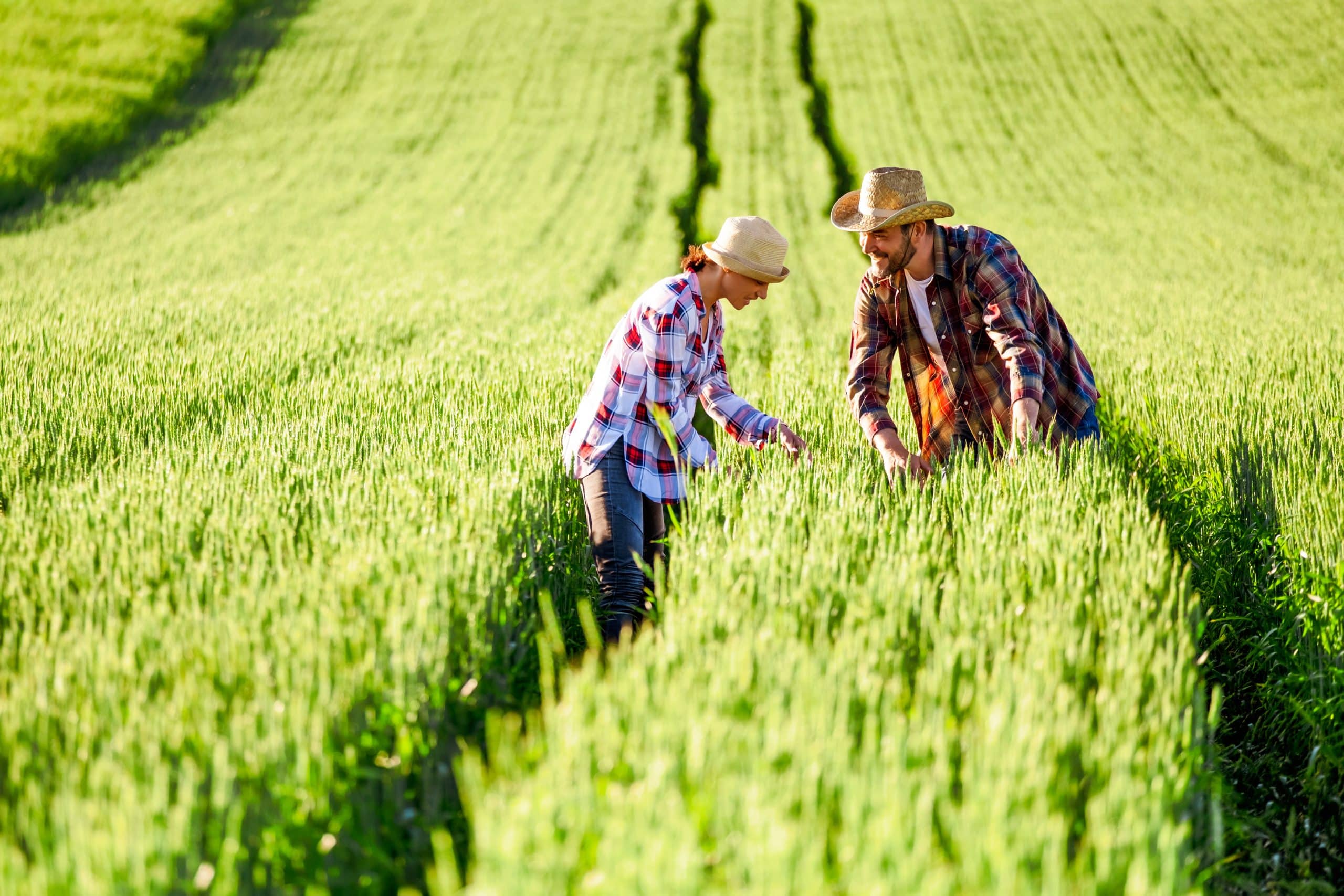How Can UK Businesses Utilize AI for Precision Agriculture to Increase Crop Yields?

Introduction
More than ever before, farmers in the United Kingdom are looking towards innovations in technology to help optimize their farming practices. This move towards modernization has been driven by the need to make agriculture more sustainable and efficient. Artificial Intelligence (AI) has emerged as a key player in this transformation, offering a range of solutions designed to help farmers increase crop yields and streamline operations. This article explores how UK businesses can leverage AI for precision farming to boost crop production.
The Impact of AI on Modern Agriculture
The game has changed for farmers in the UK. The rapid advancement of technology has paved the way for a new era of farming where data is king. Artificial Intelligence (AI), a technology that enables computers to mimic human intelligence, plays a significant role in modern agriculture.
Additional reading : What Are the Steps for Creating a Culturally Inclusive Brand Image in Diverse Markets?
AI technology offers an array of solutions that have become integral tools to assist farmers in managing their farms more efficiently. Through machine learning, farmers can now predict weather patterns, monitor soil quality, and detect crop diseases in real-time. These technological breakthroughs have significantly impacted how farmers approach their daily tasks, replacing traditional guesswork with data-driven decisions.
Precision Farming: Combining Data and Technology
Precision farming embodies the convergence of agriculture and technology where every action is guided by data. This approach involves using AI and other technologies to monitor and manage crops on a micro-level. It helps farmers to make more informed decisions about when and where to plant, irrigate, fertilize, and harvest their crops.
Also read : What Is the Role of Biodegradable Materials in the Sustainable Packaging Movement?
Through precision farming, farmers can use AI technology to gather data about their fields. Information about soil fertility, pest infestations, and weather patterns can be collected through sensors, satellites, or drones. Machine learning algorithms then analyze this data to provide actionable insights. This data-driven approach to farming helps farmers to optimize their operations, leading to increased crop yields and reduced environmental impact.
AI in Crop Management: Increasing Food Production and Quality
One of the significant applications of AI in agriculture is in crop management. Aided by machine learning, AI can analyze vast amounts of data from various sources to help farmers manage their crops better. This includes data on soil composition, crop health, weather conditions, and pests.
For instance, AI-enabled drones can capture high-resolution images of a farm, allowing farmers to monitor their crops in real time. Using this data, farmers can identify pests, diseases or nutrient deficiencies early, and take action to mitigate their impact.
On a larger scale, AI can also predict market trends, helping farmers decide what crops to plant for the upcoming season. This can greatly improve a farm’s profitability and resilience in a rapidly changing market.
AI and Soil Health: The Future of Sustainable Farming
The health of soil is paramount to the success of any farming operation. Soil fertility directly influences the quality and yield of crops. AI, with its predictive capabilities, can help farmers manage soil health more effectively.
AI can analyze soil data, including its nutrient content, pH levels, and moisture status, to provide farmers with precise details about their fields. This enables farmers to apply the right amount of water, fertilizer, and pesticides at the right time, reducing waste and promoting sustainable farming practices.
AI’s role in soil health management is an embodiment of precision agriculture. It showcases how AI can help farmers make informed decisions that not only increase crop yields but also contribute to long-term agricultural sustainability.
In conclusion, AI offers immense potential to revolutionize agriculture in the UK. As we move towards a future dominated by data and technology, farmers can look forward to a more efficient, sustainable, and productive farming industry.
AI in Supply Chain Optimization: Streamlining Agriculture Operations
In recent years, the role of AI has extended far beyond farming fields and into the complex world of supply chain management. AI technology, particularly machine learning and predictive analytics, is increasingly being used to streamline operations in the agricultural supply chain.
In essence, the supply chain in agriculture involves the process of growing, harvesting, processing, packaging, and delivering agricultural goods. This process can be extremely complex, often involving multiple stakeholders and a wide array of variables that need to be managed correctly for effective operations.
AI excels in managing such complexity. By leveraging machine learning and data-driven decision making, AI can analyze past and present supply chain data to generate accurate forecasts. This can help farmers anticipate demand, adjust their production accordingly and reduce waste.
Moreover, real-time monitoring enabled by AI can help detect anomalies in the supply chain. For instance, AI can help identify delays in the delivery of agricultural products and suggest alternative routes. It can also assist in inventory management, ensuring that the right amounts of resources are available at the right time.
The use of AI also extends to the realm of quality control. With the help of computer vision, a form of deep learning, AI can inspect agricultural products for quality and consistency. This not only improves the overall quality of the supply but also reduces the risk of foodborne illnesses.
In sum, AI’s application in supply chain management highlights its potential to optimize farming operations, thereby contributing to efficient and sustainable agricultural practices.
The Role of AI in Environmental Impact Reduction: Towards Sustainable Agriculture
As the world grapples with the impact of climate change, the need for sustainable farming practices has become more urgent than ever. AI, with its ability to analyze large sets of data and provide actionable insights, can be instrumental in reducing the environmental impact of agriculture.
Conventional farming practices often result in overuse of resources such as water and fertilizers, leading to environmental degradation. AI, however, can promote sustainable resource utilization through precision farming and real-time monitoring. AI can analyze soil and weather data to determine the optimal amount of water and nutrients required for each crop, thus minimizing wastage.
Furthermore, the use of AI in pest and disease detection can reduce the need for harmful pesticides. Machine learning algorithms can identify pests and diseases in their early stages, allowing farmers to take targeted action and minimize damage to their crops and the environment.
AI can also contribute to the reduction of greenhouse gas emissions. By optimizing farming operations and supply chains, AI can reduce the need for energy-intensive activities. Additionally, AI can also help farmers adopt carbon sequestration practices, contributing to efforts to mitigate climate change.
In conclusion, AI’s role in environmental impact reduction presents a promising avenue for sustainable agriculture. By leveraging AI, farmers can embrace environmentally-friendly practices that not only increase crop yield but also contribute to the health of our planet.
Conclusion
The integration of AI in UK agriculture has transformed the way farming is conducted. From increasing crop yields to ensuring soil health, optimizing supply chains and reducing environmental impact, the benefits of AI are manifold. With AI at the helm, farming is no longer a game of guesswork, but a strategic, data-driven operation. As we embrace the future of farming, it is clear that AI, with its ability to make informed decisions based on accurate data interpretation, will be at the forefront of agricultural innovation. The future of farming in the UK is not just more efficient and productive, but also sustainable, thanks to the advent of AI.
